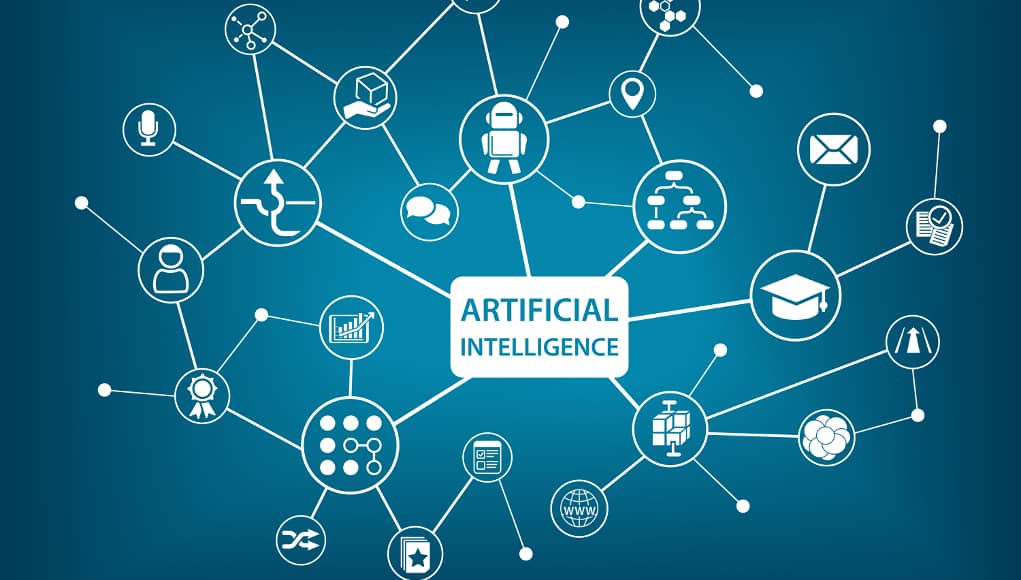
(Source)
Artificial intelligence is a growing field of technology that has the potential to fundamentally transform the American education industry. The field has already produced many beneficial innovations and has contemplated new ideas which look promising for the near future. For teachers, advances in this area can be helpful because this technology can: automate administrative tasks, improve student assessments and analytics, and personalize learning content as well as educational experiences. With respect to students, artificial intelligence can increase their academic growth because these programs can: assess a student’s performance and learning style and adjust accordingly, engage students in a more personalized and interactive manner, and help improve their writing skills. Furthermore, even though some of these benefits have yet to be fully realized, many companies have already created a wide variety of learning language models that already partially accomplish some of these goals.
One of the most famous examples of this is Chat GPT-3. This is a learning language model that was launched on November 30, 2022 by Open AI, and it basically interacts with users by having conversations with them. Anyone who accesses this platform can enter in a prompt and immediately receive answers, references, and suggestions to help them with their specific situation. This is a step up from previous learning language models because the program has already been trained on massive amounts of data and it continually learns from these interactions without having any intervention. Nonetheless, learning language models like Chat GPT-3 are heavily reliant on collecting data from people who use their services; this data collection allows companies to generate revenue and improve their learning language models. If schools started to integrate these programs into their own systems, to achieve some of the benefits that were previously mentioned, potential legal issues may arise because this integration might violate privacy laws that apply to the education industry.
A federal privacy law that could be implicated by using things like Chat-GPT in the classroom is the Federal Education Rights and Privacy Act (“FERPA”). FERPA is a law that “protects the privacy of student education records” by requiring schools to have written permission from either a parent or student in order to release any information that is contained within the applicable student’s education record. A student’s education record can include, but is not limited to, things such as: grades, transcripts, and disciplinary records. This act only allows disclosure of this information, without the consent of a parent or the student themselves, if it is given to a party that is enumerated as an exception within the act or if certain conditions are met. Examples of these exempted non-consensual disclosures include: other school officials and contractors who have been outsourced institutional services or functions. Nonetheless, schools are also allowed to disclose directory information without this aforementioned consent, but they must notify students and parents of this and afford them a reasonable amount of time to request nondisclosure of such information. FERPA applies to all schools that receive funds through any United States Department of Education program. Consequently, FERPA affects almost all public schools, and a large number of private postsecondary schools, but it does not impact many private schools at the elementary or secondary level. Furthermore, educational institutions who receive Department of Education funding are required to comply with FERPA if they want to continue to receive such funding.
Learning language models can complicate an educational institution’s compliance with FERPA because many of these systems are trained on student data and continually utilize it to improve their programs. FERPA has a high standard for de-identifying personally identifiable information regarding students, and the more information that is fed into these programs increases the likelihood that sensitive information may be revealed. Moreover, even if information is stripped of obvious identifying information, companies could still theoretically associate data with particular students. In this regard, the integration of artificial intelligence into an educational institution’s learning systems can increase the possibility of non-compliance with FERPA’s mandates. However, these risks do not completely foreclose schools and other educational institutions from using artificial intelligence to enhance their teaching capabilities. These institutions should still try to integrate these programs into their education systems, because of the potential benefits that they may provide, but education institutes covered by FERPA will need to do their due diligence on these programs. This due diligence should include conversations with companies regarding things such as how they collect, protect, anonymize, and use student data.
Suggested Citation: Brian Kam, An Important Consideration Regarding AI and Education, Cornell J.L. & Pub. Pol’y, The Issue Spotter, (Oct. 31, 2024), https://jlpp.org/an-important-consideration-regarding-ai-and-education.


